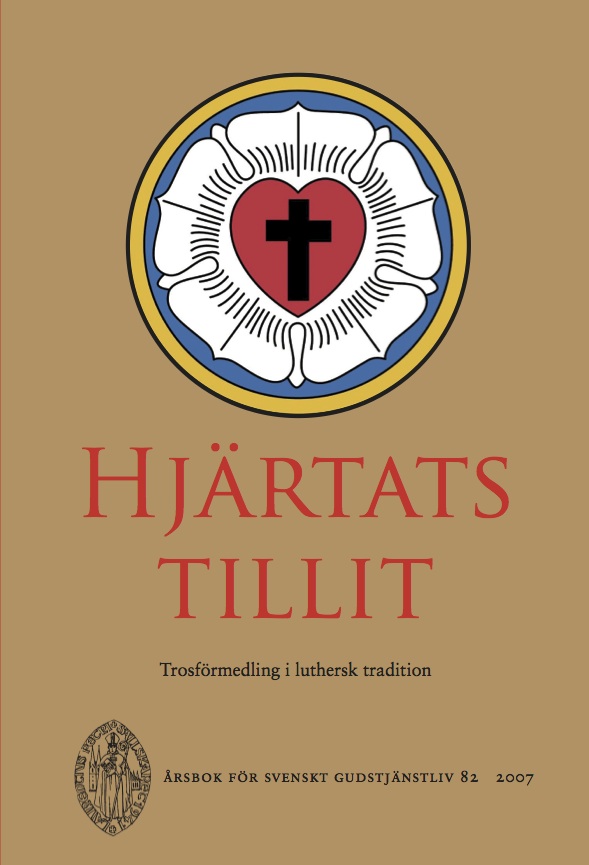"Lutherska" tankar i Anders Frostensons psalmer
Abstract
"Lutheran" Thoughts in the Hymns of Anders Frostenson
This essay describes Anders Frostenson’s theological position as it is expressed in the hymns he has written which are included in the 1986 edition of the Church of Sweden Hymnal. The hymns are interpreted in this essay as an entity and few biographical or historical elements are discussed.
Anders Frostenson (AF) is rooted in the Lutheran Church tradition. During his academic studies in Lund during the 1930’s he met such representatives of this tradition as Gustaf Aulén, Anders Nygren and Gustaf Wingren. This essay presents and discusses the similarities and differences in thinking between AF and these other theologians.
The hymns express an attitude of inclusiveness. Tradition and patterns of thinking which are often contrasted with one another are instead integrated in AF’s hymns, enabling people of different backgrounds to relate to the hymns, especially in their juxtaposition of older, traditional times with modern society.
AF’s hymns connect ideas of faith and free will with an enhanced vision of this world as the meeting place for God, as is often expressed in popular (»folk») Lutheran church spirit. His hymns seem at times to be personal statements by a very strong-minded person. At the same time there is emphasis on the Church as an institution and the liberal Swedish Lutheran Church in particular.
Communion as an open and inclusively unbounded fellowship is praised in many hymns. Baptism is, on the other hand, only mentioned in passing. This essay implies that the hymns also include underlying mystical experiences of oneness with God – unio mystica. AF is supportive of modern, urban society, yet he also expresses a sense of being an outsider – a common feeling in our times.
AF’s hymns are suited to people living in a time of transition as they identify the divine presence in our modern lives, yet his use of traditional symbols offer spiritual sustenance from the world of one’s childhood.
The hymns express a strong feeling for nature and the Nordic summer – both as an earthly reality and symbolic of a spiritual world. AF’s hymns are also suited to our post-modern times because they combine the aspect of free will with feelings of security provided by a structured community in the form of the Church. The »great Biblical story» is again and again recounted in the hymns. This provides an individual with a meaningful context; an »eternal home» and »a summer that never ends».
Downloads
Published
Issue
Section
License
© the authors, Laurentius Petri Sällskapet för Svenskt Gudstjänstliv and Artos & Norma Bokförlag. Copying and using material from Svenskt Gudstjänstliv for scholarly purposes is permitted as long as the source is indicated. For other uses, please contact the respective author as well as the publisher. Special restrictions may apply to images.


